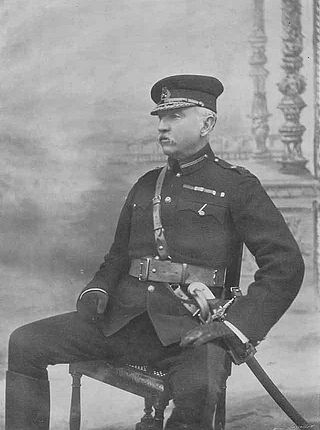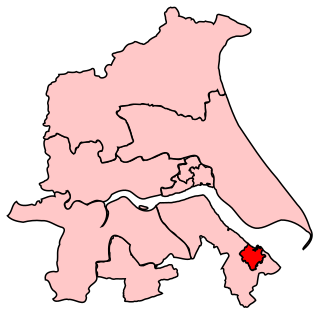Related Research Articles

John Joseph Clancy, usually known as J. J. Clancy, was an Irish nationalist politician and Member of Parliament (MP) in the House of Commons for North Dublin from 1885 to 1918. He was one of the leaders of the later Irish Home Rule movement and promoter of the Housing of the Working Classes (Ireland) Act 1908, known as the Clancy Act. Called to the Irish Bar in 1887, he became a King's Counsel in 1906.

General Sir Thomas Kelly-Kenny was a British Army general who served in the Second Boer War.
William Kenny PC (I), QC, was an Irish judge and Liberal Unionist politician.
Edward Sheil was an Irish nationalist politician. He was a Member of Parliament (MP) for Athlone from 1874 to 1880, for Meath from 1882 to 1885, and for South Meath from 1885 to 1892, taking his seat in the House of Commons of the United Kingdom of Great Britain and Ireland.
Matthew Joseph Kenny was an Irish lawyer and Nationalist politician from County Clare. He was elected to the United Kingdom House of Commons at the age of 21, qualified as a barrister whilst still a member of parliament (MP), and later became a judge in the Irish Free State.

Sir Robert Purvis was a British barrister and Liberal Unionist politician. He sat in the House of Commons from 1895 to 1905 as the Member of Parliament (MP) for Peterborough.
The 1914 North East Derbyshire by-election was a Parliamentary by-election held on 20 May 1914. The constituency returned one Member of Parliament (MP) to the House of Commons of the United Kingdom, elected by the first past the post voting system. About a third of the electorate were directly involved in the mining industry. This was the penultimate by-election to take place before the outbreak of the First World War. It demonstrated the weakness of support for the Labour party in 1914 when opposed by a Liberal party candidate.

The 1914 Great Grimsby by-election was a Parliamentary by-election held on 12 May 1914. The constituency returned one Member of Parliament (MP) to the House of Commons of the United Kingdom, elected by the first past the post voting system. It was one of the last by-election contests to take place before the outbreak of the Great War, and provided a good indicator of how the main parties would have performed at an anticipated general election for 1914 or 1915.
The 1898 Liverpool Kirkdale by-election was a parliamentary by-election held in England on 9 December 1898 for the British House of Commons constituency of Liverpool Kirkdale.
The 1910 Liverpool Kirkdale by-election was a parliamentary by-election held in England on 20 July 1910 for the British House of Commons constituency of Liverpool Kirkdale.
The 1897 Liverpool Exchange by-election was a by-election held in England on 10 November 1897 for the British House of Commons constituency of Liverpool Exchange.
The 1902 Liverpool East Toxteth by-election was held on 6 November 1902 after the resignation of the Conservative MP Augustus Frederick Warr. The seat was retained by the Conservative candidate Austin Taylor.
The 1880 Kilkenny City by-election took place on 26 February 1880. It arose due to the resignation of the incumbent Liberal MP, Benjamin Whitworth, in order to contest Drogheda. A Mr. Doherty, from Dublin, went forward as a Home Rule candidate, but withdrew, since he had accepted some government contracts. The only candidate nominated was John Francis Smithwick, who was declared elected unopposed. Smithwick, although described in The Times as a Liberal, was known as a strong supporter of Home Rule. Doherty ran against Smithwick in the general election, less than two months later, as a Home Rule candidate. Smithwick won by 318 votes to 204.
The 1879 Donegal by-election was fought on 15 December 1879. The by-election, to one of two seats in the UK House of Commons constituency of Donegal, arose due to the death of the incumbent Conservative MP, William Wilson.

The 1874 Birkenhead by-election was fought on 24 November 1874. The by-election was fought due to the death of the incumbent Conservative MP, John Laird. It was won by the Conservative candidate David MacIver.
The 1911 North Tyrone by-election was a Parliamentary by-election. North Tyrone returned one Member of Parliament (MP) to the House of Commons of the United Kingdom, elected by the first past the post voting system. The by-election was held on 6 October 1911.
The North West Staffordshire by-election was a Parliamentary by-election held on 31 July 1907. The constituency returned one Member of Parliament (MP) to the House of Commons of the United Kingdom, elected by the first past the post voting system.
The 1905 Carlisle by-election was a Parliamentary by-election held on 14 July 1905. The constituency returned one Member of Parliament (MP) to the House of Commons of the United Kingdom, elected by the first past the post voting system.
The March 1875 Tipperary by-election took place on 11 March 1875. The by-election, to one of two seats in the UK House of Commons constituency of Tipperary, arose due to the disqualification of the recently elected member, John Mitchel, who had won an uncontested by-election the previous month.
The 1900 Edinburgh and St Andrews Universities by-election was a parliamentary by-election held in Scotland on 3 May 1900 for the UK House of Commons constituency of Edinburgh and St Andrews Universities.
References
- ↑ "Election Intelligence." Times [London, England] 6 Nov. 1882
- ↑ "News in Brief." Times [London, England] 7 Nov. 1882
- ↑ "Election Intelligence." Times [London, England] 15 Nov. 1882
- ↑ "Biographies Of Candidates." Times [London, England] 27 Nov. 1885; "The New Parliament." Times [London, England] 4 Dec. 1885